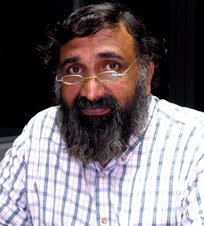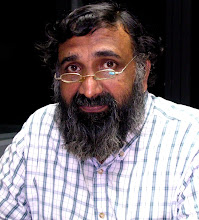"The Right to Read" is a short story by Richard Stallman, the founder of the Free Software Foundation, which was first published in 1997 in Communications of the ACM.
The story is about a university student who can’t afford her reading license. She is unable to access the knowledge required to pass the class, and so, a fellow student comes to her rescue by breaking the law in the most unimaginable, horrific way imaginable: He lets her use his password to access the knowledge. This way, she will be able to read.
In 1997, Dr. Stallman predicted that if things continue, the copyright industry will push for a criminalization of the sharing of passwords, and succeed. Now, has unfortunately been proven correct. The US state of Tennessee just made the sharing of passwords a criminal act, at — predictably — the request of the copyright industry.(Read the story here). It is a cautionary tale set in the year 2047, when DRM-like technologies are employed to restrict the readership of books: when the sharing of books and written material is a crime punishable by imprisonment. We didn't have to wait so long for the story to start becoming reality!
In 2005, the Princeton University bookstore (not affiliated with the university itself) announced that they planned to offer DRM controlled e-book format textbooks, restricting reading of said books to the computer that downloaded them, and expiring after 12 months. This is virtually identical to what Richard Stallman theorized in the story.
And now, a court has ruled in favour of such things by affirming that buyers don't own digital stuff, they are only permitted to use them. "When will this stop? How many politicians need to lose their jobs before this madness ends?" asks Rick Falkvinge here:
The Americans are expected to do such mad things especially since it is a country ruled by the multinational corporations (democracy of the companies, by the companies and for the companies?). But we should be constantly vigilant and never permit anything like that in India. Let us at least try to remain "sane" as long as we can and remember that these systems are supposed to be for the people (us) and not the other way around (people exist so that corporations can grow)
The story is about a university student who can’t afford her reading license. She is unable to access the knowledge required to pass the class, and so, a fellow student comes to her rescue by breaking the law in the most unimaginable, horrific way imaginable: He lets her use his password to access the knowledge. This way, she will be able to read.
In 1997, Dr. Stallman predicted that if things continue, the copyright industry will push for a criminalization of the sharing of passwords, and succeed. Now, has unfortunately been proven correct. The US state of Tennessee just made the sharing of passwords a criminal act, at — predictably — the request of the copyright industry.(Read the story here). It is a cautionary tale set in the year 2047, when DRM-like technologies are employed to restrict the readership of books: when the sharing of books and written material is a crime punishable by imprisonment. We didn't have to wait so long for the story to start becoming reality!
In 2005, the Princeton University bookstore (not affiliated with the university itself) announced that they planned to offer DRM controlled e-book format textbooks, restricting reading of said books to the computer that downloaded them, and expiring after 12 months. This is virtually identical to what Richard Stallman theorized in the story.
And now, a court has ruled in favour of such things by affirming that buyers don't own digital stuff, they are only permitted to use them. "When will this stop? How many politicians need to lose their jobs before this madness ends?" asks Rick Falkvinge here:
The Americans are expected to do such mad things especially since it is a country ruled by the multinational corporations (democracy of the companies, by the companies and for the companies?). But we should be constantly vigilant and never permit anything like that in India. Let us at least try to remain "sane" as long as we can and remember that these systems are supposed to be for the people (us) and not the other way around (people exist so that corporations can grow)


No comments:
Post a Comment